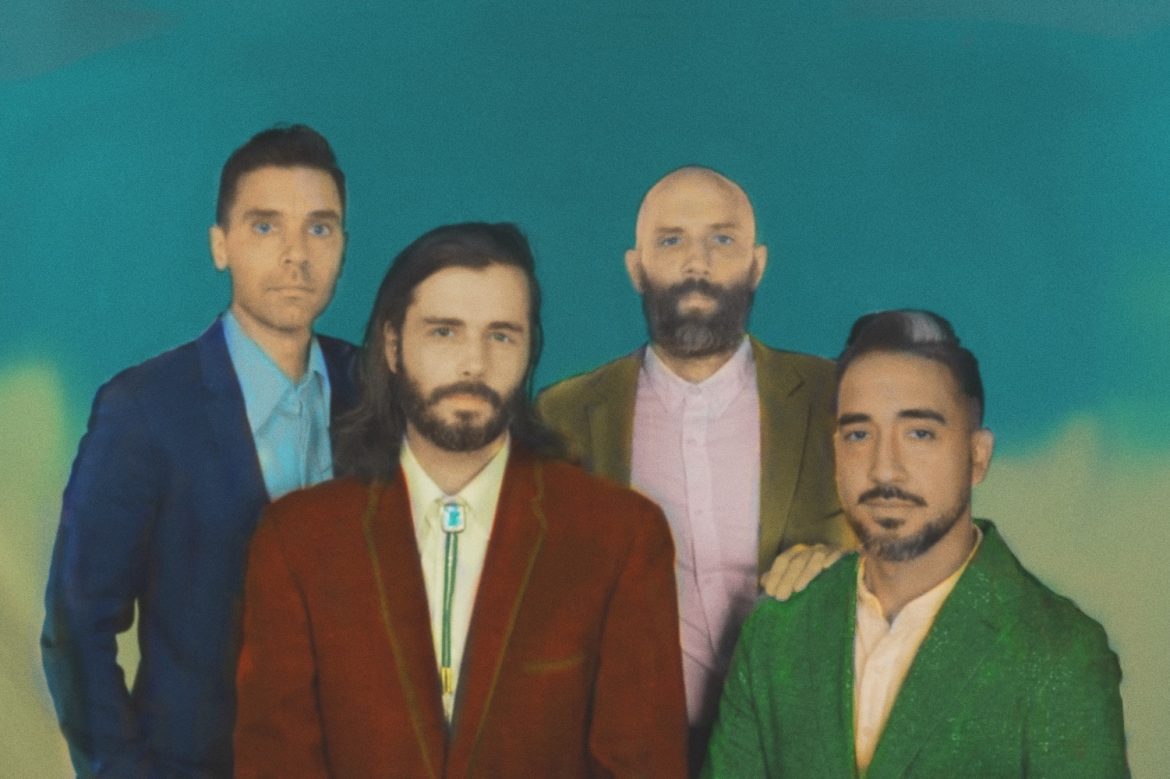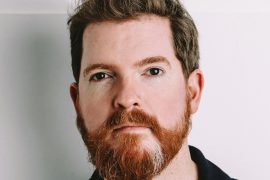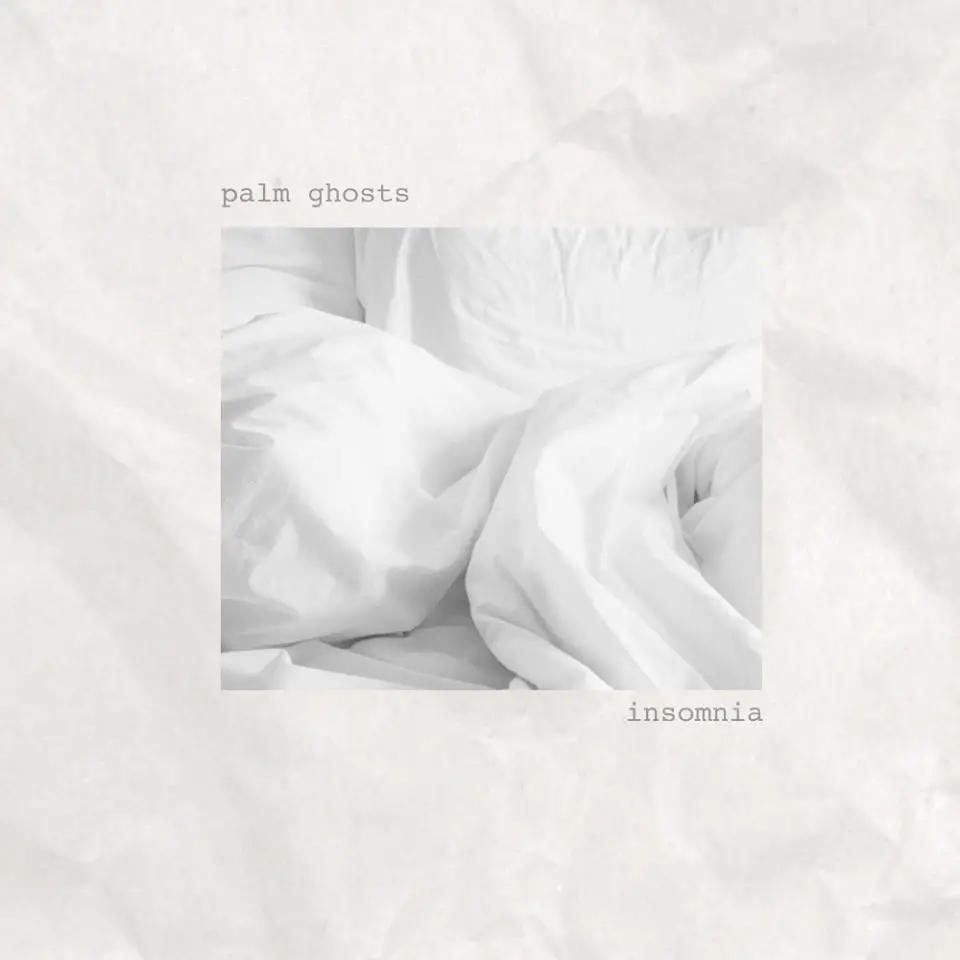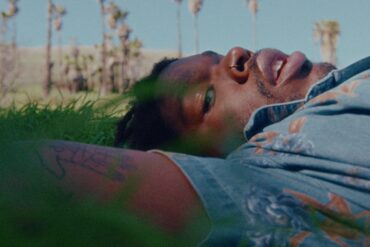Lord Huron’s Ben Schneider speaks to Atwood Magazine about the making of their timeless, breathtaking fourth album ‘Long Lost’ – an achingly beautiful and “indefinably nostalgic” tribute to Whispering Pines Studios and time’s blur: To love, loss, presence, absence, heartbreak, and everything in-between.
Stream: ‘Long Lost’ – Lord Huron
Time will wash things away, and you need to appreciate them while you have them.
Listening to Lord Huron’s fourth album is like stepping back in time to a forgotten world; to an era from the past that you can’t place your fingers on.
It feels both intimately familiar and impossibly distant all at once. You “feel like you discovered some album you somehow missed from a time period you can’t quite figure out,” as frontman and lead songwriter Ben Schneider says. “It’s nostalgic… the tones and the way it’s recorded, the song structures, the rhythms and the melodies remind you of something, but…” it’s just out of reach.
Indefinably nostalgic and achingly beautiful, Lord Huron’s Long Lost is a breathtaking tribute to Whispering Pines Studios and time’s blur: To presence, absence, love, loss, heartbreak, and everything in-between. It’s the new relic of a long gone Americana that might have been, or never was – and a reminder to cherish those we love today, because they won’t be around forever.
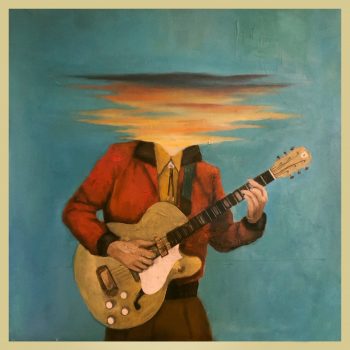
I’ve a tale or two, to tell you
But the booze just makes me slow
I can rack my brain remembering
But I guess maybe I’ll just go
There’s a method to my madness
There’s a secret to this town
There’s a reason why I’m still living here
Though I can’t think of it right now
I made a promise when I left for the coast
Twenty long years ago
I made a life out of chasing a ghost
Twenty years takes its toll
Released May 21, 2021 via Whispering Pines Studios Inc. / Republic Records, Long Lost finds Lord Huron dwelling in a ghostly past of their own creation. The follow-up to the indie folk band’s critically acclaimed third album Vide Noir finds them soaking up the “history” of Whispering Pines, their recording studio of nearly a decade – whose true history is something of a blur, and lost to time.

“It’s like our clubhouse,” Schneider says of the studio. “It’s a very haunted feel, it’s very stuck in a time warp. The decor is all the original stuff from the ’70s, and we had to replace a lot of the electronics and equipment, but it has this very haunted, trapped-in-time feel. So, we’ve invented characters that we imagine haunting it, or people who have passed through in the past, and writing from their perspective became the concept of the album.”
The legendary “Tubbs Tarbell” is the host of Alive From Whispering Pines, an hour-long variety show on which characters from around the country play their songs of “hard luck, heartbreak, and redemption, delivered with emotional honesty that will haunt you for years to come,” according to the band’s self-made retro advertisement.
A charismatic figure we hear only in brief snippets throughout the album, Tarbell acts as our guide through this haunted history of Whispering Pines.
“He’s a very sentimental guy who really treasures his memories, but they’re slowly being taken from him by time’s blur,” Schneider says. “And so, not only does he introduce the songs every night, but you get to hear some of his backstory and learn about his friends, these other artists at Whispering Pines whom he’s worked with over the years. He just seemed like a good way to introduce people into this world and tease out some of the backstory of all these folks.”
The sky doesn’t care what my poor heart wants
And the desert can’t hear my cries
The moon doesn’t mind that I’m left all alone
And she’s gone, gone
– “The Moon Doesn’t Mind,” Lord Huron
And that he is. We meet Tarbell a short ways into Long Lost, following the phantasmic minute-long opener “The Moon Doesn’t Mind” and the impassioned “Mine Forever” – a dynamic, emotionally and sonically charged love song. Its an early album highlight – not to mention an instant Lord Huron classic – and one that even Schneider himself lists as a personal favorite.
“I’m really proud of the sonics on that one,” he shares. “I think we really hit it with that tune, where it’s really hard to put your finger on what era it’s trying to evoke, which I really like.”

As glistening guitars shimmer and drums shake a steady beat, Schneider sings a poignant, pained song of romance, intimacy, connection and disconnect; of lost love transcending time, and reuniting at long last in some fateful, faraway future.
“Love is strange, I can’t sleep without you, maybe in the grave I can dream about you,” he sings, capturing the wistful and forlorn pain of a broken heart. “Everybody lies but I’ll never doubt you, I don’t want to die but I can’t live without you.” It’s the kind of visceral storytelling we expect to hear from country songs of old – though how old, we can’t exactly tell:
If you ever want to see my face again I want to know
If you ever get lonely please let me know
If you never want to see my face again I’ll understand
If forever gets lonely take my hand
Don’t laugh, you’ll make me cry
So long, good luck, goodbye
I know we will be together
In my mind you’re mine forever
In my mind you’re mine forever
If you’re ever gonna leave this place, don’t wait, it’s time to go
If you really want to stay I’ll go alone
If you tell me where to meet there I’ll wait ’til I turn to bones
Oh, we really should have left here long ago
Love is strange, I can’t sleep without you
Maybe in the grave I can dream about you
Everybody lies but I’ll never doubt you
I don’t want to die but I can’t live without you
As “Mine Forever” fades out, Tubbs Tarbell fades in and we quickly realize this album we’ve started listening to is some sort of music showcase. “Welcome back,” Tarbell says to a studio audience’s applause. “Yup, alright. How about that? … Now folks, from what I hear this young fella comin’ up next is one helluva performer. So without any further delay, let’s see what he can do.”
And into the next song, we go.
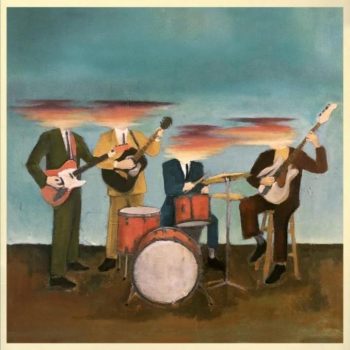
For nearly an hour, Lord Huron treat us to their charming indie folk, integrated here with just a touch of country and steeped in old Western Americana flare.
Schneider’s songwriting is as relatable as it is evocative; he croons passionately of broken hearts and love’s longing; of fond memories and ethereal dreams. Paired with these expressive lyrics are enchanting, dreamy instrumental arrangements, made all the more powerful thanks to the band’s creative production styles and techniques.
Every song is another melancholy trip down memory lane, and each has its own alluring flavor – from the foot-stomping “Love Me Like You Used To” and the bittersweet “Meet Me in the City,” to the elegant, effervescent “Long Lost,” the pensive ballad “Twenty Long Years,” and the lonesome “Drops in the Lake.” Some songs – like “Where Did the Time Go” and album closer “What Do It Mean” – confront the concept of time’s passing head on, whisking listeners into their own warm worlds of wonder while delving into hazy, semi-philosophical depths filled with somber feelings and rhetorical questioning.
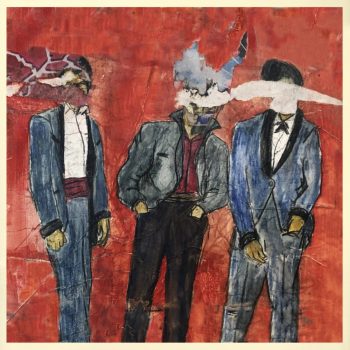
It’s not all sad, though: The album’s lead single “Not Dead Yet” is a wily, energized moment of invigorating defiance in the face of the inevitable: “All messed up with nowhere to go, I stare at myself in the mirror alone. It’s hard to make friends when you’re half in the grave, but I ain’t dead yet, and I’ve got something to say,” Schneider sings triumphantly.
“While that song might not be the most representative necessarily of everything else on the album, I feel like it’s a good way to just sort of get someone paying a little bit of attention sonically.”
An upbeat anthem, “Not Dead Yet” is certainly a standout in more ways than one – and it’s refreshing to hear the band bask in a moment of hope, resilience, and reverie.
Still, Lord Huron have a proven track record of making compelling sad music, and on the other side of the emotional spectrum lies the painfully woebegone “I Lied,” a poetic heartbreak duet with Texan-born singer/songwriter Allison Ponthier:
I swore that I’d become a better man for you and I tried
I tried to change my ways and walk the line you follow
I bore a flame that burned a thousand suns for you but it died
I told you I could never love somebody else but I lied
I told you I’d be coming back again for you but I’m not
I’m going way out where the world will never find me
I made a claim that I would dance until we’re bones with my bride
I told you I would never leave you all alone but I lied
[Allison Ponthier, with Lord Huron]
I read your letter in the morning by the lake and I cried
They were tears of joy, my chains are finally broken
I made a vow to stand beside you ’til the day that I die
Told you I could never live without your love but I lied
A self-fulfilling prophecy, Long Lost has the look and feel of a timeless classic –
and after a few listens, it truly becomes one. Each of Lord Huron’s new songs taps into deeply relatable emotions, and their Alive From Whispering Pines concept lends the listening experience an especially cinematic quality.
Long Lost may very well become a newfound favorite, after all.
Atwood Magazine spoke with Lord Huron’s Ben Schneider about time’s blur, the making of Long Lost, and his own homeopathic kind of nihilism. Dive into the “indefinably nostalgic” Long Lost in our interview below, and listen to Lord Huron’s fourth album wherever you get your music.
— —
:: stream/purchase Long Lost here ::
Stream: “Mine Forever” – Lord Huron
A CONVERSATION WITH LORD HURON
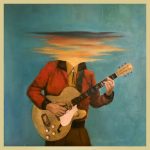
Atwood Magazine: Thanks for your time today, Ben! Before we discuss Long Lost, I want to check in with you, your family and the band: How have you been doing throughout this past year and a half?
Ben Schneider: I think, like everybody, it’s been a lot of ups and downs, mixed emotions. A lot of fear, I guess. But we’re all very thankful for how it turned out. None of us got sick in the band. Really nobody in our immediate families either, so everybody was careful. We had the luxury of being able to be careful without it being too inconvenient, since we didn’t have to… We have a very flexible job. It’s easy for us to keep in a bubble. We weren’t supposed to be touring that much, thankfully. So yeah, a lot to be thankful for, but all of us are really looking forward to being able to hug our buddies.
Yeah. Was this album already done by the time the pandemic started or did this record kinda come out at that time?
Ben Schneider: We had just wrapped the band tracking when the lockdown started here. I think we had just finished tracking the band and we were moving into over-dubbing the pedal steel. We had a session booked on March ninth, and we had to cancel it ’cause something weird was going on. I remember the night before, frantic calling back and forth among the band and the hired players, just trying to decide what to do, like, “Should we do it? How serious is this lockdown? Oh, we’ll pick it back up in a couple of weeks. Let’s play it safe.” And obviously, it didn’t work out that way, but most of the tracking was done, thankfully, so it was easy for us as a bubble of the four of us to finish the rest of it.
Well, I'm glad you were able to get the pedal steel on the record. And we'll talk about that in a bit because I think it plays a big part. But going back a second, you've talked previously about how Vide Noir was a departure in sound for you and the band. I was kinda curious, what lessons, if any, did you take out of making that album?
Ben Schneider: Good question. I think, more than anything, that album was a stretching. I don’t know, trying some new things in the studio, working out our production muscles, and learning some things about how to produce a record and the different ways you can do it. Yeah, I think the biggest departure in terms of that record was just all the things we were trying out in the studio, really blowing things out making them sound distorted. Yeah, and just experimenting. And I think we learned a lot of things from that that we applied to this record. And I don’t know, for me, all the records exist on a continuum, each one a chance to learn something new and hopefully, apply it to the next thing we do.
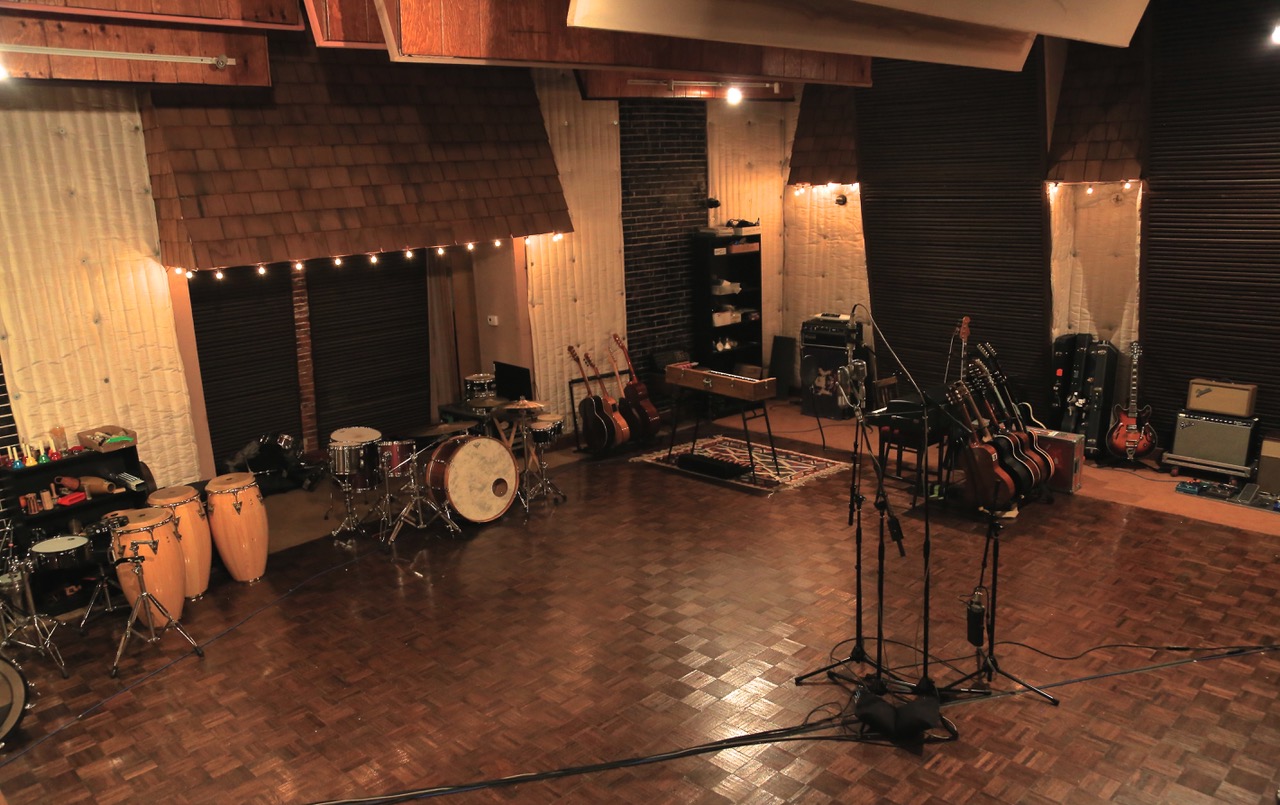
I listen to Long Lost, and I think about how you took guitars in 2020-2019 and you made them sound like they were in 1945-1950. Do you think you could have done this kind of manipulation in the studio without the experiences of your last record?
Ben Schneider: Definitely not. Not without the experiences of all the records, honestly. We’ve always self-produced our albums, and that’s got its upsides and its downsides. I’m glad we’ve stuck with that because it’s really allowed us to learn so much. That’s really the only reason we’ve been able to do Alive From Whispering Pines too, is because of all we’ve learned along the way to help make ourselves self-sufficient. That’s a key part of our philosophy as a band, it’s just being able to DIY as much as possible with every aspect of it. Not because we’re control freaks… Well, maybe a little bit, but… [laughs] Not just because of that, also because if something happens, it’s nice to know you can handle it without relying on anything else, and that lesson really came home during the pandemic when you can’t work with other people, so you had to find a way to do it ourselves.
Are you primary producer or you share that amongst the group?
Ben Schneider: I am the primary producer, but Mark Berry, our drummer, has really come into his own as an engineer, so that’s a crucial partnership right there. And yeah, he’s got so much skill in that, and we have another engineer, Ben Tolliday, who’s worked on all of our records, who’s like an old friend, so it’s a pretty sweet team. And after all these records, we really know how to work well together and without strangling each other.
That's awesome. So, coming out of Vide Noir, what was the vision going into the fourth Lord Huron record?
Ben Schneider: Well, it was an evolving thing, I didn’t have a specific idea at the outset, but it evolved over time. We’ve been working in our studio, Whispering Pines, for about seven years now, made the past three records there, and become more of a center piece of the band, I guess, or the way we work over that period of time. Aside from recording the albums there, we rehearse there and we shoot our videos there a lot of the time, and we just hang out there, so it’s like our clubhouse. And we’ve tried to find the history of this place. It’s been there since the ’70s. There’s some info about it, but it’s a little sketchy, so we kinda… It’s a very haunted feel, it’s very stuck in a time warp. The decor is all the original stuff from the ’70s, and we had to replace a lot of the electronics and equipment, but it has this very haunted, trapped in time feel. So, we’ve invented characters that we imagine haunting it, or people who have passed through in the past, and writing from their perspective became the concept of the album. So, a lot of time when I’m writing, I like to create characters, avatars to write through, just as a way to vary the perspective, so it’s not just a 37-year-old male. [chuckle]
‘Cause I’ve done… I still consider myself a young man, and there’s a lot more to experience that I haven’t been through. And a good way to get at that sometimes is to, for me anyways, is to create a character and complete with a name and a backstory and everything. And it might seem like overkill, but I think that all that background detail helps to make it more authentic.
That's really interesting. So, you guys actually ended up making a record that itself sounded trapped in time.
Ben Schneider: That was the goal. We wanted it to feel like you were finding, coming upon a long lost classic. Not to talk ourselves up too much. I’m just saying that was the goal, not that we achieved it, but to feel like you discovered some album you somehow missed from a time period you can’t quite figure out. It’s nostalgic, and like you said, the tones and the way it’s recorded, and the song structures, and some of the rhythms and the melodies remind you of something, but… you can’t define it.
Sometimes the concept comes together after the fact, and sometimes it's in place from the start. It sounds like 'Long Lost' concept came from the start, and you were writing to fit this record. What was your template for that? What was it like coming into this? And do you find it's easier when you take yourself out of the narrative to write these story songs?
Ben Schneider: It can be. I think you always have to start at someplace true to you in order for it to ring true, so either something you’ve experienced personally or been close to, in close proximity to, in the blast zone of. It’s always a good place to start, and then you can let it spin off into fiction through these characters. But it’s not even like… I agree that the concept was there from the beginning, but that doesn’t mean I necessarily recognize that it’s being there. For me, a lot of times, creative process is more like discovery than like creation in some ways. The thing I wanna express and in the way I wanna express it is in me somewhere, I just am clearing the clouds to find it. And so, with this, I think that’s how it was. I knew some bits and details of it, but I didn’t see the whole picture until… Honestly until recently, I feel like. As we try to figure out ways to talk about it and to journalists or to people asking about what ‘Alive From Whispering Pines’ is, that’s been when I finally put my finger on it. And it still doesn’t maybe make total sense yet, but maybe in a few years, I’ll understand it.
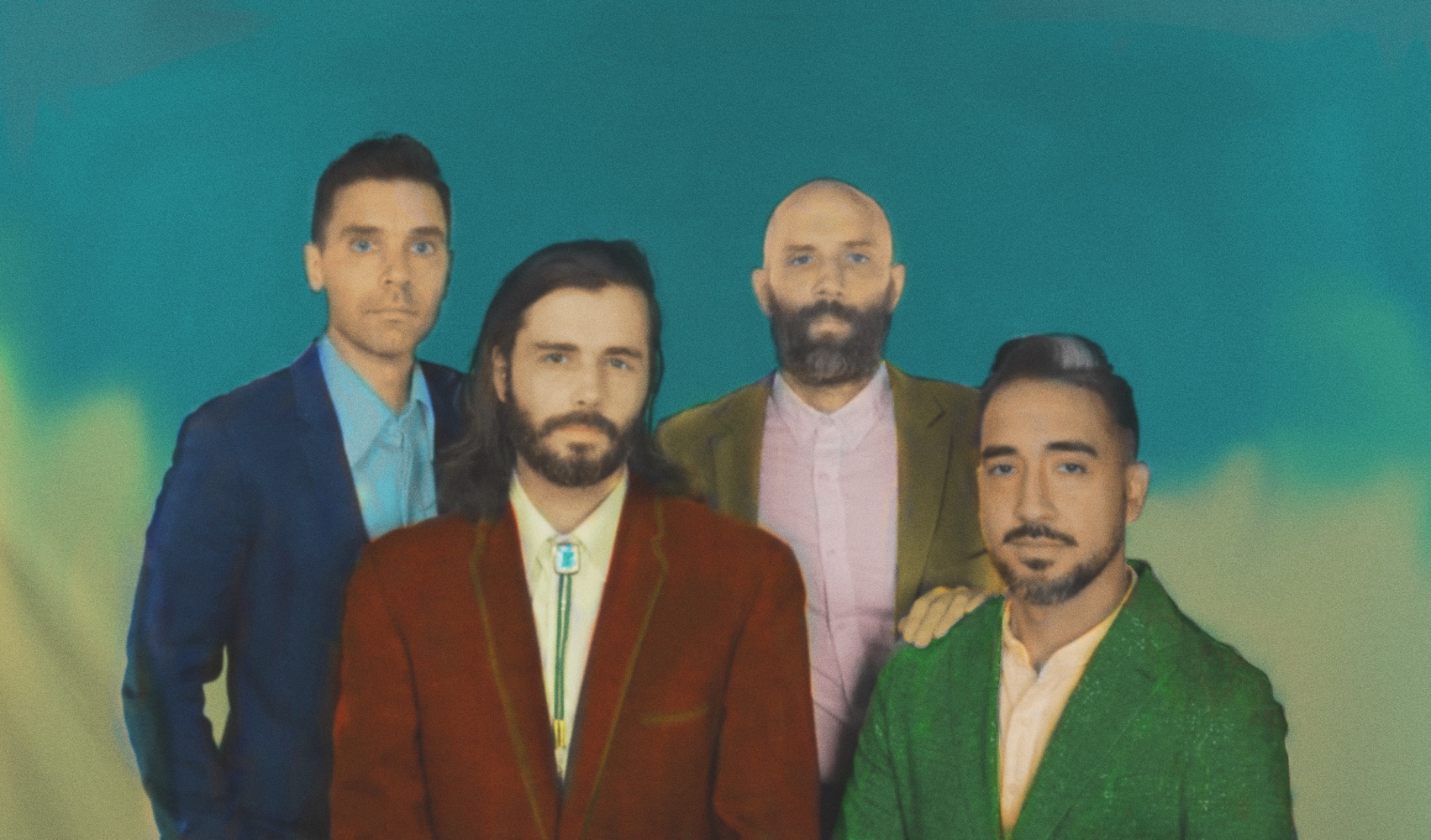
I've always experienced the Lord Huron records as little sonic novels. I think it's a testament to your ability to really start records well – with songs like ''Ends of the Earth'' (off Lonesome Dreams) and ''Love Like Ghosts'' (from Strange Trails) to really bring people into a world, and I think your new record does that exceptionally well.
Whispering Pines Studios feels like the main character in your new album. You've previously said, ''It seems full of ghosts, but they're the friendly kind.'' How has your relationship with the studio grown over the past seven years?
Ben Schneider: I think it’s changed a lot, and like I said, it’s just become more of almost a member of the band, or I guess it’s just become our superhero HQ. [chuckle] As we’ve learned more about it and like we were talking about before, learned more of how to use it as a tool, it’s just become such an integral part of the band. And just the way it started out being, really feeling kinda hopeless in finding a place to record and rehearse in Los Angeles, just ’cause prices are so ridiculous to rent or to buy, and answering literally a Craigslist ad that looked like… We almost didn’t go, ’cause we were like, “This is not gonna be worth it.” I guess just because it was such a… It felt like such a lucky beginning, we’ve kinda tried our best to hang on to it. We know we’ve got a special thing, and we’ve actually found inspiration in it. And hopefully, we can keep working there for many years to come. But it’s honestly uncertain if we will. We don’t own it. We could be booted out at any time.
I hope that doesn't happen. Every band I've talked to that leases or buys their own studio ends up falling in love with it, and you see the magic that comes with having more than three hours time on a Friday or Saturday once a month, or whatever. It's just, there's so much more to gain out of being there always and experimenting. Do you have any favorite aspects or quirks about your studio space that you really love?
Ben Schneider: I love the location. It’s in a very unsuspecting part of town. You can’t see it from the street. It’s got this back alley entrance and a little courtyard. It’s nothing fancy, but it feels like our little respite or something tucked away in the alleys of Los Angeles. It’s definitely rough around the edges inside. We’ve never remodeled or re-finished it or anything, so it’s kinda… It’s a little rough in there, but I like that. It suits our style and the way we do things, and yeah, it’s… The glass… There’s a five-paned glass control booth, and the glass is dirty.
Classic.
Ben Schneider: Yeah. It’s really nice. They don’t make ’em like this anymore. I can’t believe we stumbled upon it. It’s really special. A huge tracking room and a glass control both, isolation booth, and yeah, I don’t… Sorry, I lost track of the question but I love everything about it, I guess.

That sounds awesome. It definitely sounds like it fits Lord Huron's aesthetic, if you will. Or maybe you guys have just become the band you are because of the studio. It's a two-way street.
Ben Schneider: Yeah, I think that’s right.
A lot of this album's production, and even the sounds, as we were talking about earlier in this conversation, from the pedal steel guitar to some of the other electric guitar tones you used are reminiscent to me of '50s and '60s Country and Western. You talked about how this concept came together over time. What brought about these sounds for you? Is there an interest in that time period or... You tell me.
Ben Schneider: Yeah. We were looking for a way to be evocative and nostalgic in an indefinable way. Like I was saying, reference the past without being… I’m not that interested in straight up throwback imitation stuff. I’ve never found that to be too compelling. But I do think there’s a real value in referencing music of the past, just because people already have emotion tied up with that music, so you kinda get it for free by reminding people of that music, even in subtle ways. And in addition to getting all that emotional information for free, you also have the chance to play with their expectations or tweak a song that maybe… That it reminds them of that was a happy song, if you make it a little more of a dark theme or something, it can push your buttons in a way that you didn’t expect, and I think, bring out some new emotions, we’re always trying to put our own spin on some of those old sounds. And it was very conscious when we were producing it, using techniques they used back then, instruments they would have used at certain time periods. But we weren’t too much of sticklers about it. If we couldn’t get a hold of a 1956 Kay upright bass, we would just make it sound like it somehow else. [chuckle] Yeah, we’re not too prescriptive about it, but it was really fun, trying to discover how to make it sound that way.
Did you guys get any gear to fit the mold that you were creating?
Ben Schneider: A few things, yeah. We already had a lot of old instruments, and then we were using maybe not the exact ones they used, but similar style microphones, similar style pre-amps. And then, the mixing engineer we worked with, Paul Butler, is a legend in that space, in retro production techniques, but he’s also very future-minded, I guess, is a good way to put it. So, fit perfectly with what we were trying to do, and just a really talented guy who did an excellent job mixing.
I love the way you did it. You took this world, you drenched it in reverb, and you put your own spin on it. It feels like the whole thing is a dream. I know that you said you weren't going for mimicry, which I can definitely appreciate that, but I've been listening to some... I'm not a big country fan, but somebody really great like Conway Twitty, who just had a voice that doesn't come around too often. Were there any folks that you looked to or listened to for inspiration in figuring out how you wanted this thing to come to life?
Ben Schneider: Yeah. A lot of guys, actually. Some that come to mind… Yeah, definitely some of that… Particularly in reference to that song, “I Lied”, some of those great country duets, Conway Twitty and Loretta Lynn, and George Jones and Tammy Wynette. That era of country music had such a great vibe that’s just so alive. Ray Price, some of the stuff he was doing around then, songs like “City Lights”. But I think the biggest inspiration musically and just attitude-wise was Lee Hazlewood, who did country music, he did pop music, he did early rock and roll stuff. He had his career span from the ’50s to the 2000s, and he did psychedelic, he did surf music, he was a producer, he made his own records, he worked with other artists, but he always kind of existed at the fringe or on the edge of the business, and he did it his way, and I just really appreciate that and aspire to that. He wasn’t beholden to anything, it seems. I’m sure it’s more complicated than I imagine, but yeah, he I think just really embodies the breadth of genres and the dedication to craft and vibe that we were trying to emulate.
Yeah, I have a lot of respect for that. So, diving in just a little bit, who is Tubbs Tarbell for you? Beyond being the host of Alive from Whispering Pines.
Ben Schneider: Well, I mentioned all the ghosts haunting the studio before, and I guess I consider Tubbs to be the head ghost. He’s like the head of Whispering Pines Records and Studios, the father figure, if you will. And the way he works, hosting ‘Alive From Whispering Pines’ is, he’s sort of our guide through this world, our introduction to this world. He’s a very sentimental guy who really treasures his memories, but they’re slowly being taken from him by time’s blur. And so, not only does he introduce the songs every night, but you get to hear some of his backstory and learn about his friends, these other artists at Whispering Pines whom he’s worked with over the years. And yeah, he just seemed like a good way to introduce people into this world and tease out some of the backstory of all these folks.
Right. You used the phrase “Time's blur.” Let's just jump down to the end of it. You have this incredible, nearly 15-minute soundscape at the end of the record. A, haven't heard that on a record in a very long time, so props to you guys. Can you tell me about this tapestry?
Ben Schneider: Yeah, that was the one major aspect of the album that arose post-pandemic. We were pretty much done, as I said, with everything, and we had planned to record all these strings and back-up singers at our studio. We got through the back-up singers before the pandemic hit, but then we couldn’t do the strings, obviously, ’cause we couldn’t do these big sessions with multiple musicians. So, what we had to do was do it remotely in Sweden, where they were still open and orchestras were still meeting. I have a good buddy who arranged the parts, and then we have a mutual friend out in Sweden who runs in a little chamber group, so they recorded it for us, and turned out great. I was sad we couldn’t do it at Whispering Pines, but still really great playing and everything. I had gotten those recordings back, but I was kinda… The pandemic had slowed down every stage of the process of making a record, as you can imagine. So, I was sitting around with all these beautiful string parts, vocal parts, and I just started stretching them and warping them, and I was really liking how it was sounding, but also conceptually, how it connected to the record, this idea of… All that track is made up of things you’ve just heard on the album, but they’re all stretched and warped.
As I see it, representing time’s blur and how things get warped in your mind over time. Not necessarily erased, but changed, and they turn into something else, and I think that’s how memory works, at least for me, a lot of the time.
That's really fascinating, the way you used the stems. It feels like you're going through this wormhole of ghosts as you listen to it. I hope people pay it attention. 'Time’s passing' does play a big part of this record, like you said, and it sounds like “Twenty Long Years” and “Where Did the Time Go” hit the nail right on the head. What is it about time's passing that's been significant for you?
Ben Schneider: Well, I think, like everybody, at some point in life you start to ponder those things, time going by and how it’s all headed the same place for all of us, the full stop, but I think it’s weird ’cause I wouldn’t at all call this a pandemic record, because like we talked about already, not only was it written but recorded mostly before, but it’s like everything in everybody’s lives right now, that’s certainly colored it. It gives it a whole new slant, what everybody has just gone through.
I think everybody can relate to that idea of losing things through the passage of time that you can’t get back. It’s almost like that process has been painfully compressed into the past year. What would normally take many years has taken a year to change everything, and people you haven’t seen, right down to… It’s not a dire thing, but even a restaurant or a bar you love that you’ll never see again. That seems trivial, but that’s real, that’s a real loss.
Do you have personal connection to these things as well?
Ben Schneider: Yeah, absolutely. Whether it’s people who you’ve had and lost or friends, or just situations in life. But for me, it’s even just like a feeling that I had at a certain time in my life that… I don’t know, you don’t quite realize it while you have it and then you can never get it back. Just a sense of the world around you that changes over time and I know that I have a different one now that someday I’ll look back and say, “Wow, that was a great feeling,” at that time, but I guess it’s just a matter of as we all know trying to appreciate it while you’re in it.
I appreciate that. Just talking about a couple of these songs specifically. ''I've a tale or two to tell you. But the booze just makes me slow. I could rack my brain remembering. But I guess maybe I just don't. There's a method to my madness. There's a secret to this town. There's a reason why I'm still living here. Though I can't think of it now.'' Besides being just a wonderfully poetic song, ''Twenty Long Years.'' Can you tell me a little bit more about that?
Ben Schneider: Yeah. Well as I mentioned before, sometimes I come up with these avatars to write to, and that one is more like a future version of myself, I guess. I guess I think of it like a future version of myself I hope not to meet, not to encounter ever ’cause I don’t wanna actually become that version. But one of the ways to get at new perspectives on emotions is just to imagine the potential outcomes of your life and that one sort of, me taking a look at some of my maybe more destructive impulses and kind of following them to their potential eventualities. Which is sort of the painful thing to do and that was like a pretty painful song to write in some ways just because it makes you think about… Yeah, just all the little slight course corrections that could lead to disaster. [chuckle] And the things inside me or the natures, the nature I have that could lead to me down a bad path but I almost feel like by writing about it, by thinking about it, it can’t come true now because I’ve like put it to paper. So, that would be too, that’d be a fortune teller then, right? If… We all know that doesn’t happen. It feels good to get it out.
“All messed up, with nowhere to go, I stare at myself in the mirror alone. It's hard to make friends when you're half in the grave, but I ain't dead yet, and I've got something to say.” You introduced this series with the song “Not Dead Yet,” which has any number of meanings. Why begin our journey with this track?
Ben Schneider: I think a lot about to do with just the sonics of it. I don’t think I have any particular expertise in this, but it does seem like you gotta find a way to get people interested, pick their interest right off the bat when you’re creating a new world for an album. And while that song might not be the most representative necessarily of everything else on the album, I feel like it’s a good way to just sort of get someone paying a little bit of attention sonically.
Long Lost opens with “Mine Forever.” Like one of my other favorite Lord Huron songs, “Love Like Ghosts,” this track is a poignant, bittersweet take on romance and intimacy. Can you tell me a little bit more about “Mine Forever?”
Ben Schneider: Yeah. I think that it’s one of my favorite ones too, and also I think my wife’s favorite from the records, so that makes it more precious to me I guess but I think… I’m really proud of the sonics on that one. I think we’re really that nostalgic, indefinably nostalgic vibe I talked about earlier, I think we really hit it with that tune, where it’s really hard to put your finger on what era it’s trying to evoke, which I really like… and the strings! That was one that we got to record it… I think one of two string songs we got to do at our studio. So, just all the memories of being there and hearing that come together, running a string session and just hearing how much those strings add to the song really makes it special for me.
As a lyrically forward songwriter, I shared two of my favorite lyrics from this album. Do you have any favorite lyrics in these songs?
Ben Schneider: Wow… Those two that you have already mentioned are definitely ones that I appreciate, I think because they are two of the most autobiographical; “Not Dead Yet” as well, came out at the end of a touring cycle, and it’s really just a frank conversation in the mirror with myself. I really strive for simplicity in lyrics. I understand that it can come across as over-simple sometimes or I’ve heard people comment that way about the lyrics I write but I really love leaving space so that you can project yourself into it and trying to get at emotional truths as directly as possible. In a way that’s really easy to see yourself in, even if it’s not quite a situation you’ve ever been in exactly, I want you to be able to really easily sort of slip inside the skin of these characters and feel like you’re part of the story.
That's wonderful! The last lyric I'm going to bring up, is, “I'm gonna get it together, and live forever,
Ben Schneider: He says, “I’m gonna get it together and live forever,” the first time… That’s weird that I said “he says.” I say, “I’m gonna get it together and live forever.” The second time is, “I’ll make a deal with the devil and live forever.”
Okay, I love that you just said, “He says,” it sounds like you really do embody these characters...
Ben Schneider: Yeah, that was weird. I feel like I should lay down on the couch if we’re gonna really get into that one. [chuckle]
Maybe another time? But you close the album with this song that does look at life. It feels like a summary, leaving things open-ended with a lack of closure. Can you talk to me about closing with this song?
Ben Schneider: Yeah, I guess it’s just kind of my philosophy in general is that there’s no closure, you’re never gonna know everything, you just kinda have to take it as it is. And I think particularly sort of the avenues of thought I’ve taken over time or philosophy I’ve been interested in, and even just science is leading me to think there’s really no for ordained purpose to anything that’s happening and therefore how do you find meaning in life in what you’re doing. And I do think it’s there to be found, I just think people can’t be afraid to ask that question because it’s gonna naturally come up when you accept the realities of the universe and the way things are structured. And there’s no intrinsic meaning, I don’t think, but you have to kind of create it and find it, and that’s what that song’s about.
Sounds a little nihilistic.
Ben Schneider: It is, but I think it’s just realistic, and then it’s up to us to sort of smoke that out. I don’t think we can look away from that because it’s uncomfortable, I guess is what I’m saying. I think in the long term we’ll all be much more healthy and happy if we can sort of face those big dark truths.
I hear you. So it's like a homeopathic kind of nihilism?
Ben Schneider: [chuckle] That sounds so soft. I love it.
What do you hope listeners take away from Long Lost, and what have you and your bandmates taken away from creating it and now putting it out?
Ben Schneider: Again, partially due to the circumstances we’ve all been under, I think the biggest lesson we’ve come away with from this is even a greater appreciation for each other as friends and bandmates, but also for all the people who are making that possible, all the fans who we’re so connected with. And especially through ‘Alive from Whispering Pines,’ it’s really just been such a touching experience to find a way to connect with fans almost in a more… Even though it’s not in person, it’s almost in a deeper way that I feel like we’ve connected with people during this whole mess.
So I think similarly, the hope for the album sort of conjures up that feeling for people that time will wash things away, and you need to appreciate them while you have them. But also to remember things that are gone and not forget your old buddies who you may have lost along the way. So yeah, I guess definitely for us we’re all feeling very thankful for each other as a band and we’re all friends anyway but even more love between us now, I think, than ever.
That's awesome! It's great that you guys found that resolve, not only in this difficult year but also through this record in particular. I know you shared with me that “Mine Forever” is one of your favorites. Do you have any other highlights that we haven't talked about yet?
Ben Schneider: No, I really love the way it works together. A lot of people think the album is dying art form and I guess that may be true in some way, but I think it will forever be a really effective way to communicate things. It’s just such a beautiful format, in my opinion, and we always take great pains to craft it as a body of work rather than just a string of songs, they really… We want them to fit together and tell a deeper story by being in the order they’re in and… Yeah, I’m just, I’m proud of the way the time we spent on that and the way it turned out.
I love how you really gave an homage to your studio space; there's not many artists who talk about it these days. Electric Lady comes to mind, Abbey Road, obviously, but people don't really discuss studios that much anymore; in fact, many make their music in their bedrooms!
Ben Schneider: Exactly, yeah, a lot of people aren’t even working in studios, which is great,’cause it’s easier to make music. There’s nothing bad about it being easier to make music these days, but I think there is a special thing that comes along with working in a big space like that that you can’t recreate in a closet or a bedroom.
I appreciate Tubbs Tarbell for the same reason, because he reminds me of Ed Sullivan, Casey Kasem… Variety show hosts and truly impactful disc jockeys, they’re both a dying art.
Ben Schneider: We’ve talked a lot about that lately, actually, just how scarce scarcity is these days. A lot of the most rewarding interactions with artwork I had were with stuff that was hard to get a hold of. Or, once you had it, you felt like you really had to enjoy it while you could. Or, you buy one record a month and you just live with it whether you like it or not, and then by the end of it, you love it. And that’s kind of hard to synthesize that now, just because everything’s so readily available. But that’s one thing we were trying to do with ‘Alive From Whispering Pines,’ was just feel more special by it being a little harder to access. That doesn’t always have to be a monetary thing, it can… We’re not gonna put it up on YouTube right away, or maybe we’ll just release it on a Blu-Ray. Let’s do Laser Disk and really throw people off, I don’t know. But yeah, I’ve missed that, ’cause something that feels more rewarding, when things are hard… Not just there for you at the snap of your fingers.
Well, I think this record conjures up that spirit of lost Americana; there's something that we've lost over time.
Ben Schneider: It’s that nostalgia thing that’s hard to define, but I think people know what I’m trying to get at, which, hopefully means they can connect with it.
You used the words “indefinably nostalgic” earlier.
Ben Schneider: I think everybody can appreciate that, ’cause it’s not like I was alive in that period, and I’m sure I’m greatly making it more wonderful than it actually was. Idealizing is the word I’m looking for. But I don’t know, there’s still something comforting about it anyway. I don’t care.
Yeah. Listen, they're not gonna come back and say, “Hey, you're appropriating our sounds.”
Ben Schneider: If Elvis does come back and tell me I’m appropriating his sound, I’m okay with that. That’d be cool.
Ben, it's been a pleasure. Thank you so much for your time. Lastly, who are you listening to right now? Who are some artists you would recommend to our readers?
Ben Schneider: Well, if you haven’t ever done a deep dive into Lee Hazlewood, I would tell everybody to do that, just because there’s so much to behold in his long career. The record he did with Nancy Sinatra is probably his most well-known, Nancy and Lee, and it’s a great record. “Some Velvet Morning”, to me, is one of the most perfect recordings ever made, so that’s a good place to start, ’cause it’s weird, but it’s accessible. And there are some standards on there that are really easy to swallow. So, start there. You can’t go wrong.
Ben Schneider: Other than that, what have we been listening to around here? My wife just brought home the new Elvis Perkins record, who’s a guy who doesn’t put out many records, but whenever he does, it’s cool stuff, so we’re listening to that here at home. I’ve been listening to… What have I been listening to? Honestly, it’s just been… My folks are in town. My dad’s a big Bob Dylan fan, so we’ve been listening to a lot of Bob Dylan – well, his new record, Rough and Rowdy Ways, which was a nice, pleasant surprise. I really love the lyrics on that record, particularly the first track. So yeah, I don’t know, it’s been all over the place. But that’s where I’m at right now.
— —
:: stream/purchase Long Lost here ::
— — — —

Connect to Lord Huron on
Facebook, Twitter, Instagram
Discover new music on Atwood Magazine
? © Anthony Wilson
:: Stream Lord Huron ::

